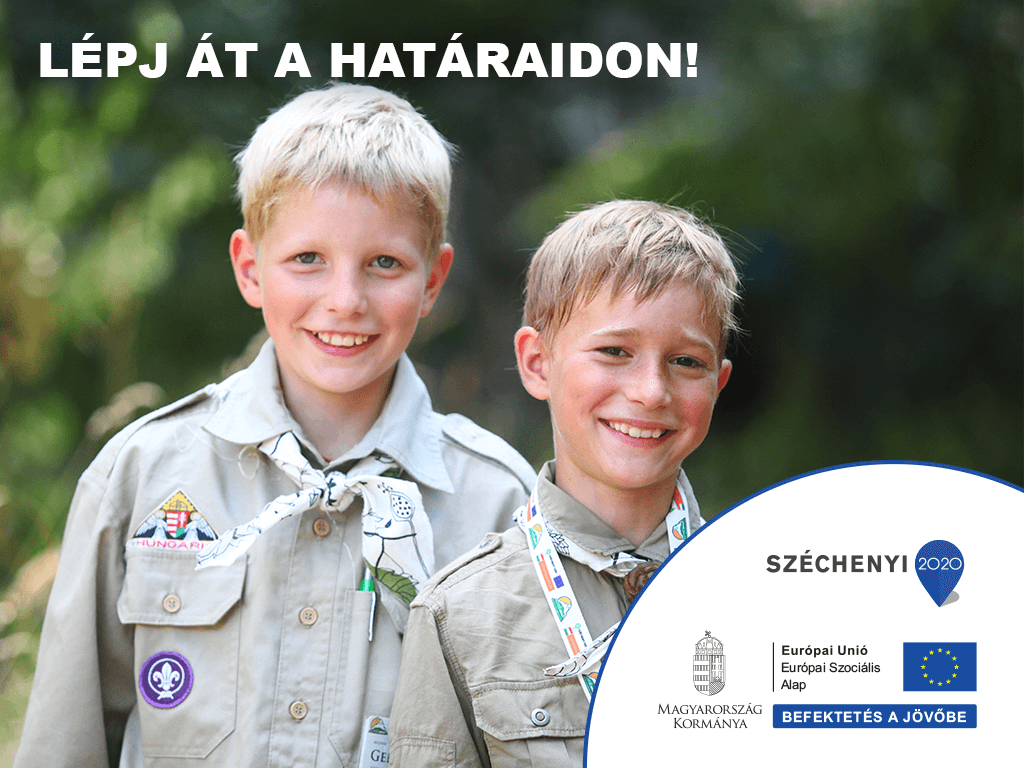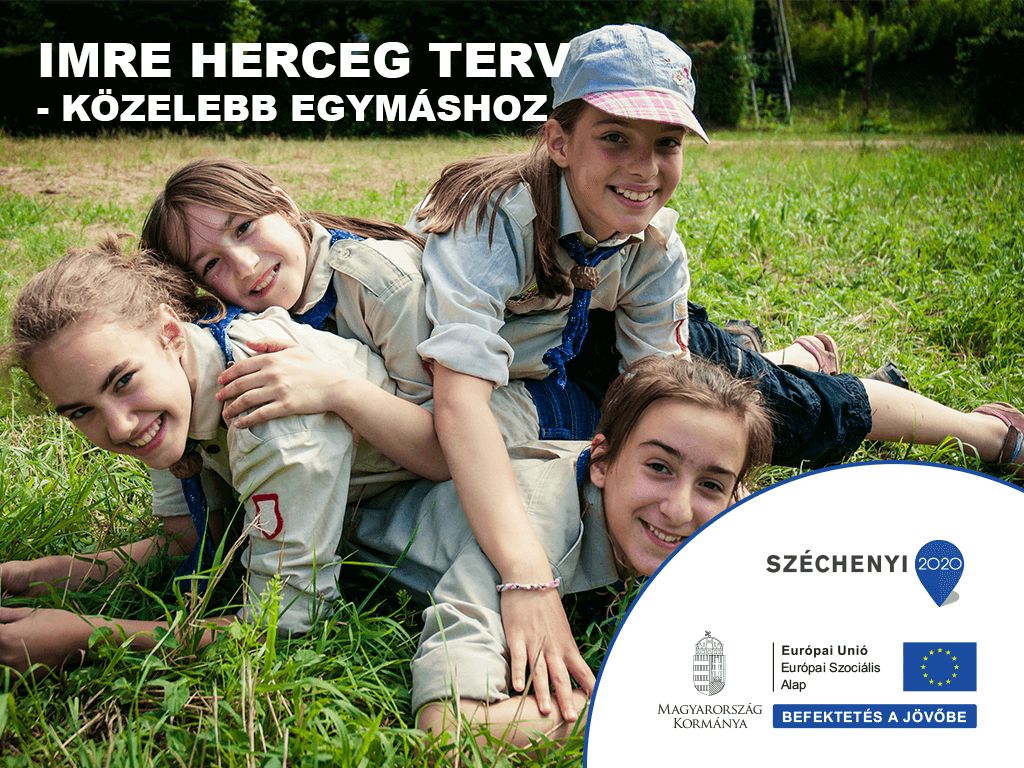The Association
Who are we?
Scouting is a voluntary, religious, non-governmental youth movement, which welcomes everybody, regardless of origin, gender, social or financial situation as well as religious belief. Scouting is one of the biggest youth movements in the world. There are over 38 million Scouts working in more than 200 countries all around the globe, with one common aim in view: to support children and young people to become active and committed adults. The Hungarian Scout Association is a member of the World Organization of the Scout Movement, which was granted consultative status to the UN. In the 200 groups of the Hungarian Scout Association there are about 10 thousand Scouts working actively in every county of the country. Besides our Association there are a couple of scout associations with smaller membership.
What are we doing?
The Hungarian Scout movement believes that society should consist of down-to-earth, committed, responsible and healthy citizens, who are devoted to advance towards God through their own continuous self-improvement. For this reason we provide a life model, and we educate young people with the help of our volunteers. In collaboration with local communities we provide this opportunity to everyone from the age of 7, who is open for our values and would participate actively in the life of his/her community. We use our informal method, the Scout method as a mean of education, which includes the following:
Scouting is a voluntary, religious, non-governmental youth movement, which welcomes everybody, regardless of origin, gender, social or financial situation as well as religious belief. Scouting is one of the biggest youth movements in the world. There are over 38 million Scouts working in more than 200 countries all around the globe, with one common aim in view: to support children and young people to become active and committed adults. The Hungarian Scout Association is a member of the World Organization of the Scout Movement, which was granted consultative status to the UN. In the 200 groups of the Hungarian Scout Association there are about 10 thousand Scouts working actively in every county of the country. Besides our Association there are a couple of scout associations with smaller membership.
|
Cub Scouts (Age 6-10): They are getting prepared for Scouting. They play a lot, like wild animals that get prepared for life in the woods. In the course of the games they form unity and under the protection of their leaders they can experience a real childhood alongside with their fellow brownies and they learn how to live in community. |
|
|
Scouts (Age 10-14): Following the instructions of their (patrol) leaders they acquire expertise and they get ready for life. As a first step, they commit themselves with a promise, which is an independent decision they make by themsselves. They have rather limited room to maneuver, it is their leader who makes the decisions. Walking this journey side by side, they learn how to be a member of a community. |
|
|
Ventures (Age 14-17): They are beyond the standard frames of scouting; they long for adulthood, but belong to the “endangered” group. They have grown up, but there is still a long way to go. They search on their own, and they do not respond well to limitations. For this reason their leader gives them more space, and sets the direction which they should follow and the zone in which they are free to roam about. |
|
|
Rovers (Age 17-22): They recognise the right direction, the “path of prosperity” in the course of their wanderings. They head in that direction, independently, in their own pace. They decide about the journey; the destination is already set. They suffer the consequences of their decisions: they have the opportunity to make everything a benefit to themselves. The group gives them advice and ideas. By means of the values and experience they embraced, they become responsible citizens with a strong scale of values and learn to learn for the community. |
|
|
Adults: Settlers or “Nest-builders” (Age 22- marriage): They seek to settle and start a life at the end of their journey. They integrate into the society where they live and the aspire to start a family, find a profession and make a home. Masters (marriage - pension): Having walked down the road of Scouting they lead a tranquil, reasoned life and show an example with their own lives. They form the basis for family scouting. “Wise” (65+): People with an experience of life, upon whose life Scouting had a determining effect. They are together because of their memories and experiences. The are willing to give advice, but shall not intervene into the new methods of the masters. We are very grateful for their work, since they paved the way for us. |
What are we doing?
The Hungarian Scout movement believes that society should consist of down-to-earth, committed, responsible and healthy citizens, who are devoted to advance towards God through their own continuous self-improvement. For this reason we provide a life model, and we educate young people with the help of our volunteers. In collaboration with local communities we provide this opportunity to everyone from the age of 7, who is open for our values and would participate actively in the life of his/her community. We use our informal method, the Scout method as a mean of education, which includes the following:
- small community (patrol) system,
- the promise and the rules,
- learning by doing,
- inspiring, pleasant and useful programmes, mainly in nature,
- conservation of the Hungarian culture, especially that of our folk tradition. The educational foundation of Scouting was laid by Robert Baden-Powell, a British lieutenant-general more than 100 years ago. However, the Scout method – which is based on the small group system and on the idea of ‘learning by doing’ – is more relevant than ever!














